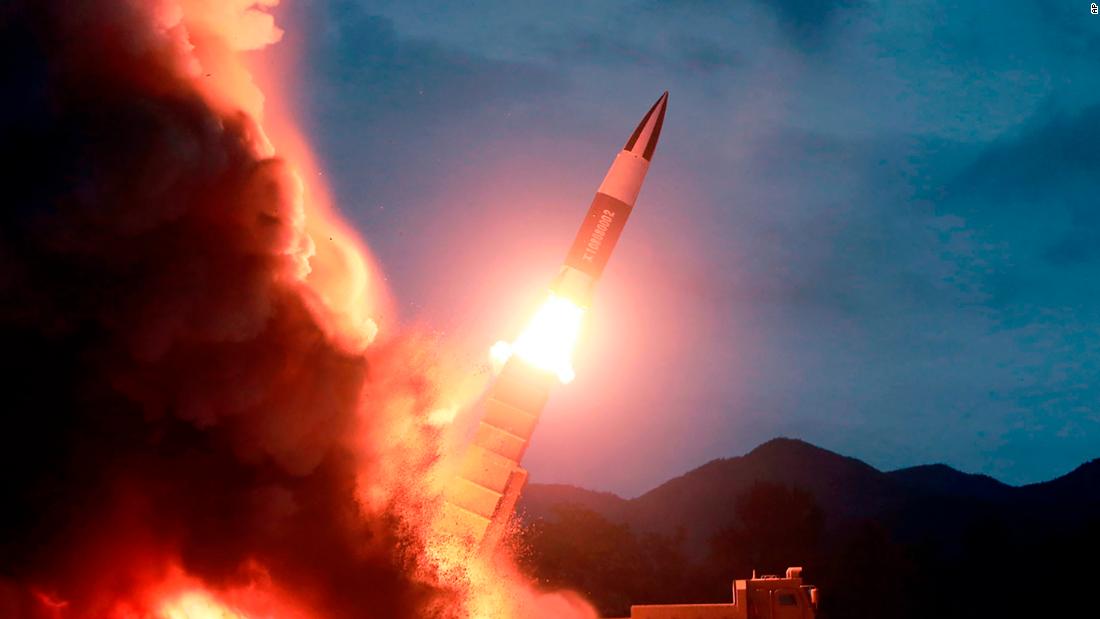
In a statement, the South Korean Joint Chiefs of Staff said the North conducted the launch early Friday morning from a site near the city of Tongchon.
The projectiles flew approximately 230 kilometers (142 miles) at a maximum altitude of 30km (18.6mi) and a top speed of approximately Mach 6.1, according to South Korean officials.
"The intelligence authorities of South Korea and the United States are in the process of analysis and the South Korean military is closely monitoring military movements and maintaining a strong readiness stance," said the statement.
The launch came a day after Moon pledged to try to reunify the Korean Peninsula by 2045 -- the 100th anniversary of Korean independence -- in his annual liberation day address.
A spokesperson for North Korea's Committee for the Peaceful Reunification of the Country called Moon's remarks "foolish" and "reckless" in a statement published in the country's state-run media Friday.
"We have nothing to talk any more with the South Korean authorities nor have any idea to sit with them again," the statement said.
North Korea has continuously voiced stern opposition to ongoing joint US-South Korean military drills and Seoul's decision to purchase F-35 stealth fighter jets. Pyongyang argues the moves are impediment to peace efforts and has framed its recent weapons tests as reactions to moves by Seoul and Washington.
Moon said in his speech that South Korea has defense capabilities stronger than those of North Korea, and that his country was monitoring the situation with Pyongyang and was trying to prevent the escalation of tensions on the Korean peninsula.
"The ultimate goal that these actions serve, is dialogue, not confrontation," Moon said.
Moon also said North Korea's missile tests and increasingly hostile rhetoric were "worrying." However, he said "the momentum for dialogue remains unshaken."
President Donald Trump has downplayed the weapons tests, but analysts say the should give reason for Washington to worry. Experts believe Pyongyang has been test-firing much more technologically advanced weaponry than seen in previous years, including solid-fueled missiles that are easy to deploy on short notice and one that may have been able to maneuver in-flight.
"They are advanced systems that have several unusual and sophisticated features that pose major deterrence challenges," Adam Mount, the director of the Defense Posture Project at the Federation of American Scientists, told CNN earlier this month.
The weapons tests, however, do not violate the tacit agreement between Kim and Trump, which only covered long-range missiles and nuclear detonations. But they are violations of UN Security Council resoultions.
"They are troubling for everybody watching the Peninsula," John Bolton, Trump's national security adviser and a noted North Korea hawk, told Voice of America.
Bagikan Berita Ini














0 Response to "North Korea fires two more ballistic missiles as it vows to end talks with 'impudent' South Korea"
Post a Comment